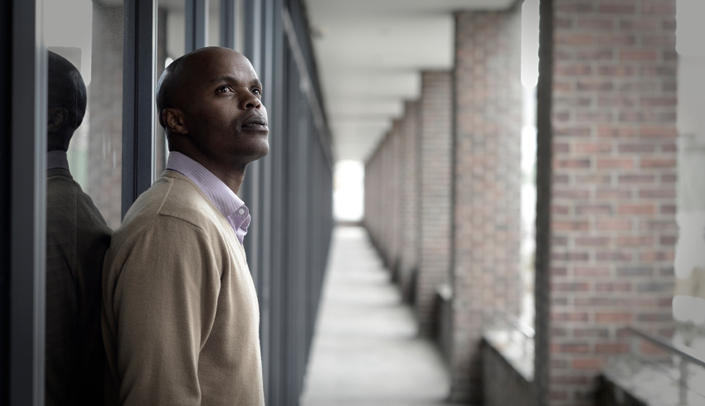In our series about stress, we’ve covered reasons why working in health care has its own unique stress factors and also our brain’s response to stress, which can inevitably shrink the brain.
“I don’t want to add to people’s stress by sharing all this and making anyone feel this is all doom and gloom,” said Steven Wengel, M.D., psychiatrist and chair, UNMC Department of Psychiatry. “The good news is we can do something about it.”
Dr. Wengel says it all begins with the Three Rs: Relationships, Routines and Relaxation.
 |
Steven Wengel, M.D. |
“Routines are a good thing,” he said, as they impact important areas in our lives like study, nutrition, spirituality, recreation, exercise and sleep.
“Regular aerobic exercise is incredibly good for the brain. It also benefits our heart and is shown to reduce stress and anxiety, elevate our mood and improve concentration.”
With relaxation, Dr. Wengel emphasized the importance of being mindful. “We have to decide where to direct our attention,” he said. “We can focus on future problems and past mistakes, or we can make a different choice.”
Dr. Wengel referred to a flashlight as a metaphor for illustrating how we can direct our thoughts. “If we choose to shine the flashlight into a certain area, we can change what we’re thinking about and that can change the way we feel.”
Dr. Wengel said this translates to our perceptions, too, meaning, how we interpret events around us.
Here are a few ways Dr. Wengel offers to assess your mindfulness:
- I drop things because I am distracted thinking about something else.
- I am always in a hurry to get where I’m going and don’t remember much of the walk or drive.
- I am “running on auto pilot” without being consciously aware of my immediate environment.
- I feel the need to multitask, such as trying to read my e-mails while talking with someone on the phone.
“Being mindful means being in the moment,” he said. “When you’re washing dishes, ask yourself ‘what does the soap feel like’? Do things deliberately.”
By practicing mindfulness and meditation, your stress levels will reduce.
